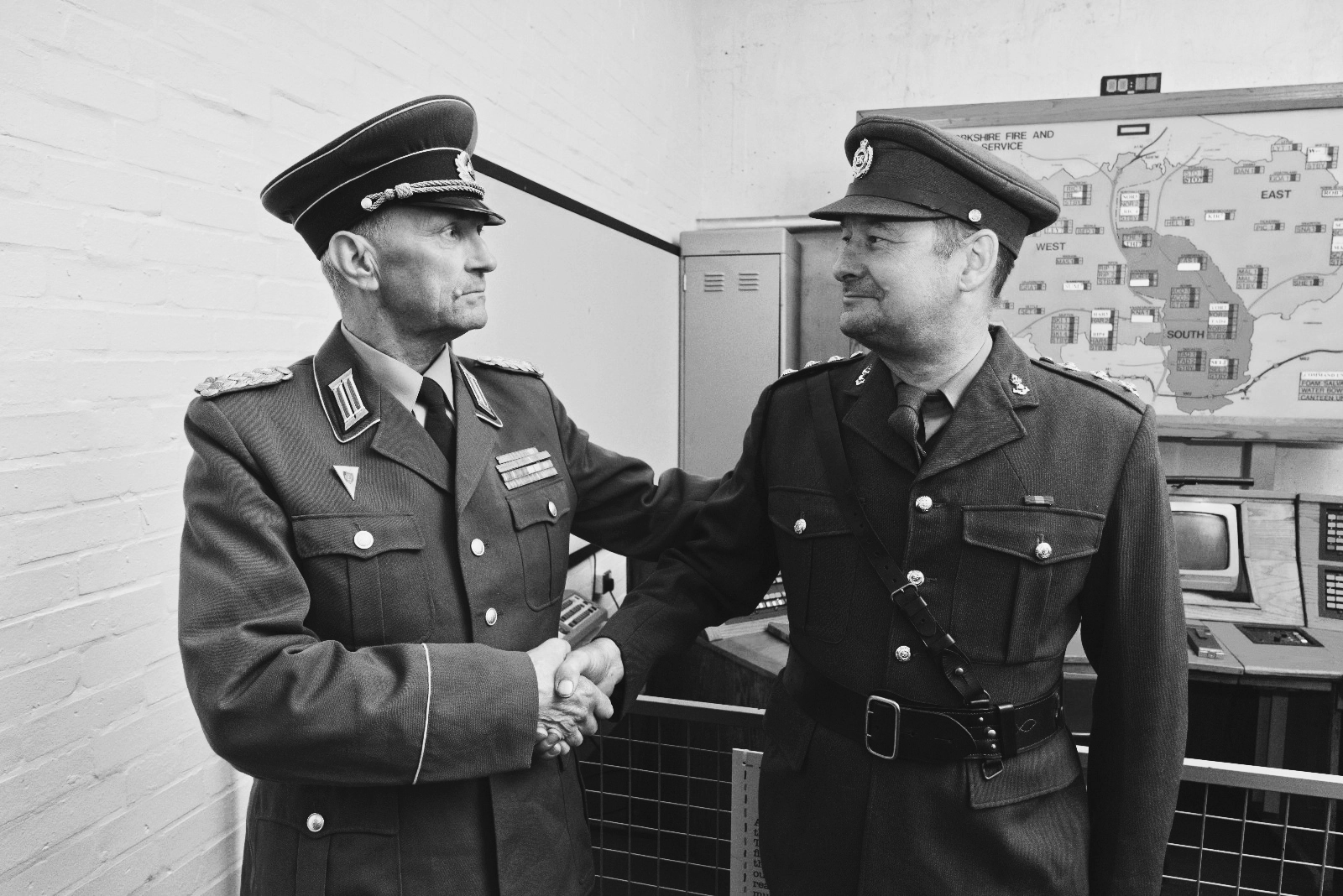

Immerse yourself in history with East West Forces Re-Enactment, a UK-based group dedicated to authentically portraying the armed forces of the former East Germany (DDR) and its Warsaw Pact allies, as well as the British Army and NATO forces during the pivotal Cold War era of the 1970s and 1980s.
From border guards and military police to tank crews, signal units, and infantry on both sides of the Iron Curtain, we bring the full spectrum of Cold War military life to the public.
We bring Cold War history to life at shows, heritage events, and military fairs across the UK. With immersive living history displays, accurate uniforms, period equipment, and engaging scenarios, we offer a vivid and educational glimpse into one of the most defining periods of the 20th century.
The Cold War era (circa 1947-1991) was one of the most critical and complex periods in modern history, shaping global alliances, military strategy, and political ideologies. It was a time of heightened tension between the Western powers, led by the United States and its NATO allies, and the Eastern bloc, spearheaded by the Soviet Union and the Warsaw Pact. For the UK and much of Europe, the Cold War influenced defense policy, civil preparedness, and daily life for decades. At East West Forces, we explore the key alliances, events, and consequences of this era to help preserve its lessons and legacy for future generations.
The Cold War was a prolonged period of political and military tension between the capitalist West and the communist East, primarily the United States and the Soviet Union. Though it never escalated into a direct large-scale conflict between the two superpowers, it involved proxy wars, nuclear arms races, espionage, and ideological battles. The world was effectively divided into two spheres of influence, with Europe as the central stage. This standoff shaped international relations, defense strategies, and global diplomacy for over four decades.
The North Atlantic Treaty Organization (NATO), established in 1949, was a military alliance formed to counter the perceived threat of Soviet expansion in Europe. Its founding members included the United States, United Kingdom, Canada, France, Belgium, the Netherlands, Luxembourg, Norway, Denmark, Portugal, and Italy. NATO's core principle — collective defense — meant that an attack on one member was considered an attack on all. Over time, more countries joined NATO, reinforcing a unified Western military presence during the Cold War. The alliance was crucial in maintaining deterrence and stability throughout Europe.
In response to NATO, the Soviet Union formed the Warsaw Pact in 1955 as a collective defense agreement among Eastern Bloc countries. Original members included the USSR, East Germany, Poland, Czechoslovakia, Hungary, Romania, Bulgaria, and Albania (which later withdrew). The Warsaw Pact served as a counterbalance to NATO, ensuring Soviet dominance over its satellite states and coordinating military efforts. The Pact symbolized the ideological and strategic divide between East and West, with Eastern Europe firmly under Soviet influence until the collapse of the Pact in 1991.
As a founding member of NATO and a close ally of the United States, the United Kingdom played a significant role during the Cold War. British forces were stationed across Europe, particularly in West Germany, as a deterrent to Soviet aggression. The UK developed its own nuclear deterrent, built underground bunkers, and implemented civil defense strategies to prepare for potential attacks. Politically, economically, and socially, the Cold War influenced British policy and public sentiment, from intelligence operations like those involving MI6 to cultural portrayals of espionage and conflict.
Preserving the history of the Cold War is vital for understanding the roots of today’s geopolitical tensions, alliances, and military strategies. This era teaches crucial lessons about diplomacy, deterrence, ideological division, and the consequences of global conflict. By remembering and reflecting on the sacrifices, challenges, and decisions of the Cold War, we can better appreciate the peace we enjoy today — and ensure we are better prepared to protect it in the future. East West Forces is committed to keeping this history alive through education, research, and public engagement.